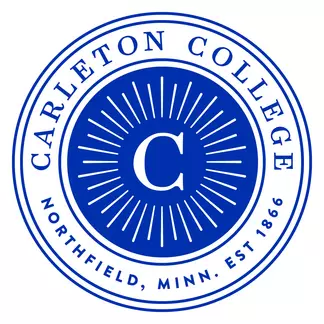
Carleton Interdisciplinary Science & Math Initiative
http://serc.carleton.edu/cismi/index.html
Program Overview
Thanks in part to generous support by the Howard Hughes Medical Institute (HHMI) for over twenty-seven years, Carleton College has successfully tested and implemented a number of educational initiatives that have truly transformed our teaching and learning at the college. These include 1) FOCUS and Summer Science Fellows, our well-established and successful programs for increasing the persistence of under-represented students in science and math majors at Carleton (83% retention rate in STEM since inception); 2) the establishment of introductory courses with additional problem-solving sessions; 3) the integration of research into the curriculum, including introductory level courses; 4) the development of a number of new courses and linked courses to help promote integrative learning between disciplines within and outside of the sciences; 5) the development of the environmental studies major, and biochemistry and neuroscience concentrations at Carleton; 6) the development of the Carleton Summer Science Initiative (CSSI), a highly successful summer academic program for high school students; and 7) the implementation and institutionalization of faculty development programs in the sciences and math at Carleton, which have influenced faculty teaching in a myriad of ways.The effects of these initiatives have truly transformed the teaching and learning at Carleton. You can see it in the diverse faces working in labs and walking the halls of the science complex. Our development office has successfully secured endowments to support student-faculty research both on and off campus, and our teaching focuses more on problem-solving and group activities rather than lecture.
Much of this success has been directly or indirectly supported by HHMI funding through leveraging existing resources or helping encourage faculty and staff to secure additional resources to support our program.
Cross-Cutting Themes
Increasing Persistence of All Students in STEM
More about this theme FOCUS, which stands for "Focusing on Cultivating Scientists," is in its ninth year at Carleton. FOCUS is designed for students interested in science and promoting diversity in the sciences. FOCUS supports students through their entry into the study of science/math at Carleton and as they continue in the curriculum by creating a cohort which enrolls in an Argument and Inquiry seminar together, meets regularly in a colloquium throughout the first and second year, and has an opportunity for work study in the sciences. Cohort activities continue throughout a student's four years at Carleton. A challenge we encountered when first implementing FOCUS was student selection. To be successful, students must not only express an interest in the sciences on their college application, but also have demonstrated ability in the sciences through their high school course work and from teacher recommendations. Using both criteria during the selection process, we have achieved an 83% retention rate in science and math. Note that we do not expect or hope to achieve much higher retention rates because our goal is to remove barriers and offer support to allow students pursue their academic passion, not lock them into a predetermined path.Developing Inquiry Skills
More about this theme Student-faculty research is an important part of the culture at Carleton. We provide funding for students to work directly with Carleton faculty and with faculty at other institutions (e.g. Mayo Clinic, MIT, UC Berkeley). Many faculty also include course-based research experiences in their classes, including at the introductory level. We recognize that students come to college from a variety of backgrounds, and that some students need extra help if they are going to succeed in math and science at Carleton. Therefore, some departments offer special sections of their introductory courses with extra time and emphasis on helping students learn how to solve math and science problems.Fostering Interdisciplinary or Integrative Learning
More about this theme Carleton has experimented with a number of initiatives and programs to help promote integrative learning throughout the science and math curriculum. In this section we highlight a few of the projects that worked and their outcomes.
Pathways to Institutional Change
More about this themeMost of the sustained curricular initiatives and innovation at Carleton are faculty-driven. This is perhaps best exemplified by the evolution of how the crafting of our HHMI proposals have evolved since the 1980s.
Funding Acknowledgment
The work described here was supported by grants from the Howard Hughes Medical Institute. Funding from Carleton College was instrumental in supporting these programs. The following specific grants funded or built upon aspects of the programs described here: NSF S-STEM, FOCUS diversity cohort program (NSF S-STEM 0850318); North Star STEM Alliance (NSF LSAMP program Phase 1, HRD-0703356; Phase 2, HRD-1201983), providing faculty-student research funding for four students each year; U.S. Department of Education, TRIO-SSS, five-year grant funded October 2015, curricular emphasis on strengthening quantitative skills of underprepared students; NSF CAREER (CHE 1552591) Cooperative Small-Molecule Activation by Ambiphilic Pincer-Type Complexes Featuring Metal/Main-Group Bonds, Matt Whited, five-year award with an emphasis on incorporating research into the curriculum, work started with an HHMI curriculum development grant; Walton Family Foundation, Scholarships for under-resourced high school students to attend Carleton Summer Science Institutes. Funded March 2015 for each of three years; MN Higher Education Office, funding for science outreach to under-resourced K–12 students, $20K, related to "teaching as learning" theme.
All the sustained hard work and enthusiasm from faculty, staff, and students at Carleton College is gratefully acknowledged.